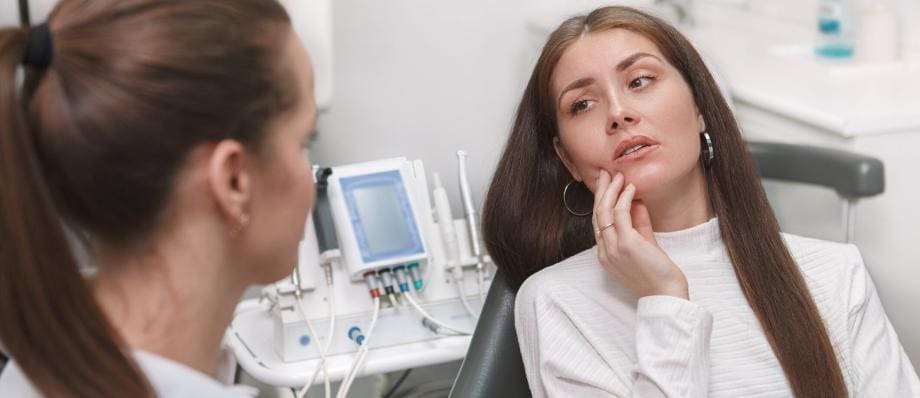Dental emergencies can occur at any time, causing significant pain, discomfort, and distress for individuals. Prompt and appropriate management of dental emergencies is crucial to alleviate pain, prevent further complications, and preserve oral health. This article explores various dental emergencies, their recognition, immediate management, and steps to prevent them.
Table of Contents
ToggleCommon Dental Emergencies
Dental emergencies encompass a range of issues that require urgent attention to mitigate pain, prevent infection, and preserve the integrity of oral structures. Some common dental emergencies include:
- Toothache
- Dental Trauma
- Abscesses and Infections
- Knocked-Out Tooth
- Lost or Loose Fillings or Crowns
- Bleeding Gums
Toothache
Severe tooth pain can result from various factors, such as dental decay, infection, or injury.
Dental Trauma
This includes injuries to the teeth, jaw, or soft tissues of the mouth due to accidents or trauma.
Abscesses and Infections
Dental abscesses are pus-filled pockets caused by bacterial infections, resulting from untreated tooth decay or gum disease.
Knocked-Out Tooth
The complete displacement of a tooth from its socket, often due to trauma or injury.
Lost or Loose Fillings or Crowns
A sudden loss or loosening of dental fillings or crowns, causing discomfort and potential damage to the affected tooth.
Bleeding Gums
Excessive or persistent bleeding from the gums can be a sign of gum disease or trauma.
Recognizing Dental Emergencies
Recognizing a dental emergency is vital to seek timely care and prevent further complications. Signs of a dental emergency include:
- Severe Pain
- Swelling and Inflammation
- Bleeding
- Trauma to the Mouth or Teeth
- Pus or Oozing
Severe Pain
Intense, persistent toothache that does not subside with over-the-counter pain relievers may indicate an underlying issue.
Swelling and Inflammation
Visible swelling, redness, or inflammation in the gums, jaw, or face could signify an infection or abscess.
Bleeding
Excessive or prolonged bleeding from the mouth, gums, or tooth socket warrants immediate attention.
Trauma to the Mouth or Teeth
Any injury or trauma to the mouth, teeth, or jaw, resulting in loosened or knocked-out teeth, requires urgent dental care.
Pus or Oozing
The presence of pus or discharge around a tooth or in the mouth may indicate an infection.
Immediate Management of Dental Emergencies
Toothache
- Rinse the mouth with warm water.
- Use dental floss to remove any trapped debris.
- Apply a cold compress to the affected area to reduce swelling.
- Over-the-counter pain relievers may help manage the pain temporarily.
- Contact a dentist for a thorough evaluation.
Dental Trauma
- Clean the injured area gently with warm water.
- Apply a cold compress to reduce swelling and pain.
- If a tooth is knocked out, gently rinse it without removing any attached tissue, and try to reinsert it into its socket. If this is not possible, place the tooth in a container of milk and seek immediate dental care.
Abscesses and Infections
- Rinse the mouth with a mild saltwater solution to reduce discomfort.
- Contact a dentist immediately for proper evaluation and treatment.
Knocked-Out Tooth
- Handle the tooth by the crown (top) and avoid touching the root.
- Rinse the tooth gently without scrubbing and attempt to reinsert it into the socket.
- If reinsertion is not possible, place the tooth in milk or a tooth preservation kit and seek immediate dental care.
Lost or Loose Fillings or Crowns
- Apply dental cement or temporary dental filling material to cover the exposed area temporarily.
- Avoid chewing on the affected side.
- Contact a dentist for a timely appointment to address the issue.
Bleeding Gums
- Rinse the mouth gently with warm saltwater.
- Apply gentle pressure to the bleeding area with a clean cloth or gauze.
- If bleeding persists, seek immediate dental attention.
Preventing Dental Emergencies
- Regular Dental Check-ups
- Maintain Good Oral Hygiene
- Protective Measures
- Dietary Awareness
- Avoiding Harmful Habits
- Emergency Dental Kit
Regular Dental Check-ups
Attend routine dental check-ups for early detection and prevention of dental issues.
Maintain Good Oral Hygiene
Brush teeth twice daily and floss regularly to prevent tooth decay and gum disease.
Protective Measures
Wear mouthguards during sports or activities with a risk of dental trauma.
Dietary Awareness
Limit sugary and acidic foods and beverages to prevent tooth decay.
Avoiding Harmful Habits
Avoid chewing hard objects or using teeth as tools to prevent damage.
Emergency Dental Kit
Have a small dental emergency kit with essentials like gauze, dental cement, and the dentist’s contact information.
Conclusion
Dental emergencies can cause significant pain and discomfort, but recognizing the signs and taking immediate steps for appropriate management can greatly alleviate the distress. Furthermore, adopting preventive measures, maintaining good oral hygiene, and seeking regular dental care can significantly reduce the likelihood of experiencing dental emergencies. In case of a dental emergency, it is essential to contact a dentist promptly for professional evaluation and treatment.

